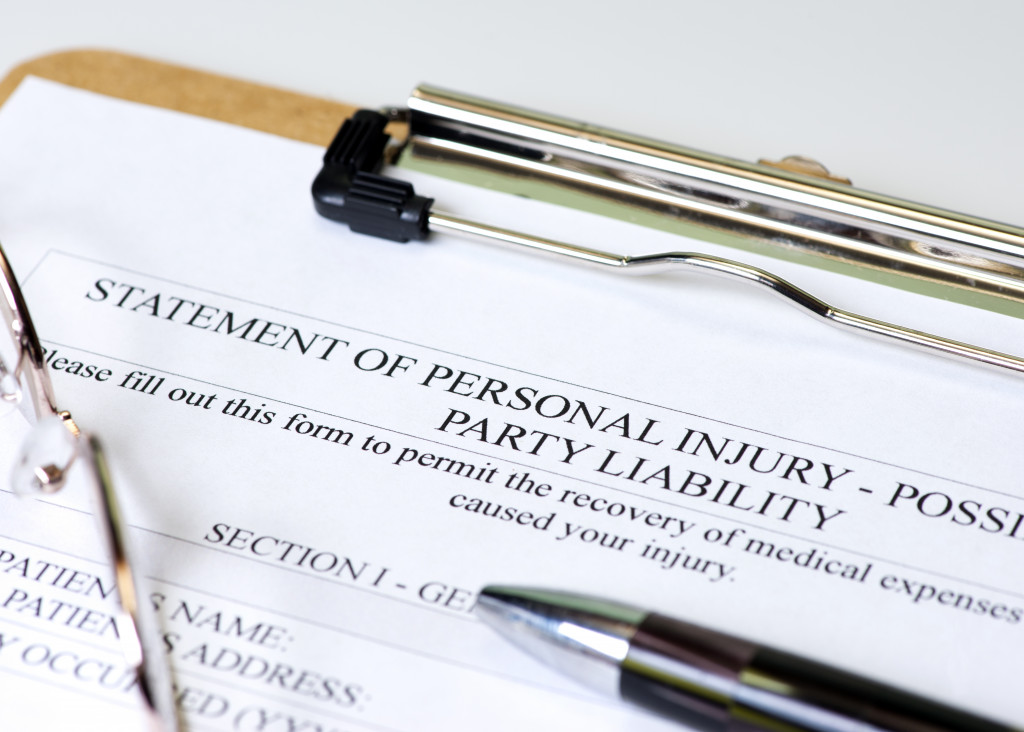• Have clear contracts that outline the scope of work, timeline agreement, disclaimers, and payment terms.
• Ensure employees are adequately trained with the necessary licenses and certifications to limit potential risks.
• Secure adequate insurance coverage such as general liability, professional liability, and workers’ compensation insurance.
• Adhere to safety guidelines set by OSHA and other regulatory bodies to ensure everyone on site is safe.
As a construction business owner, you need to be aware of your liability. Liability is a significant concern for any business, but it’s especially important for construction businesses due to the nature of their work and the potential risks involved. According to the U.S. Small Business Administration (SBA), construction businesses are the most likely to be sued for accidents, property damage, or other liabilities.
Fortunately, there are some simple steps that you can take to minimize your risk and avoid liability issues. Here are some tips to limit your liability as a construction business owner.
1. Have Clear Contracts
A well-written and comprehensive contract is essential for any business, but it’s especially important in construction. Having clear and concise agreements will help protect you and your clients from potential disputes or misunderstandings that could lead to costly legal fees or other liabilities. Your contracts should include the following:
a. Scope of work
A detailed description of the services you will provide, as well as any milestones or payment terms. Some contracts may also include a clause that outlines the process for any changes to the project or scope of work.
b. Timeline agreement
This will outline the expected start and completion date for the project. From the beginning of the project, ensure you stay on schedule and keep your clients up-to-date to avoid delays or disputes.
c. Disclaimers and indemnification
You should include a disclaimer outlining any limitations or expectations for the project and an indemnification clause defining who is responsible for any potential liabilities or damages. Even if you have a rock-solid contract, it’s always a good idea to maintain insurance policies that cover any possible losses or liabilities due to your work.
d. Payment terms
You should clearly state the payment terms, including any deposits or fees that may be required and when payments must be made. The contract should also specify any additional fees or penalties for late payments. Some contracts may also include a clause requiring payment in full before the project is completed.

2. Hire Trained Workers
Having well-trained and experienced workers on staff is essential for any construction business. Ensure that your employees are adequately trained in safety procedures and best practices to limit potential risks or liabilities. It’s also crucial to ensure that all your employees have the necessary licenses and certifications for the type of work you’re doing.
For one, construction workers in the UK must have a CSCS (Construction Skills Certification Scheme) card, which shows they have been trained and assessed in health and safety to work on construction sites by the CITB (Construction Industry Training Board). Getting a CITB test is necessary if you want to work in the construction industry. This certification also helps to protect you as an employer since it means your workers have the required skills and knowledge for their jobs.
3. Secure Insurance Coverage
Insurance coverage is one of the most important ways to protect yourself from liability issues in your construction business. Make sure that you have general liability insurance coverage at least, but you may also want to consider getting additional coverage such as professional liability (errors & omissions) insurance or workers’ compensation insurance. This will provide financial protection if something goes wrong during a project or an employee sustains an injury on the job.

4. Adhere to Safety Guidelines
Safety should always be a priority when working in construction—not just for the workers onsite but also for yourself as the employer. Accidents can happen on any job site regardless of how careful everyone is, so ensure that you adhere to all safety guidelines and regulations set by OSHA and other regulatory bodies. Ensure everyone onsite knows what they should be doing and understand all safety protocols before beginning work on any project.
Avoiding potential liabilities in your construction business requires careful planning and preparation. Following the tips outlined above can help protect yourself and your business should any issues or disputes arise. Always review and update your contracts, insurance policies, and safety protocols regularly to ensure that you’re not exposing yourself without proper protection. With these steps in place, you can rest assured that you’re minimizing your risk and doing your best to ensure a successful project for you and your client.
